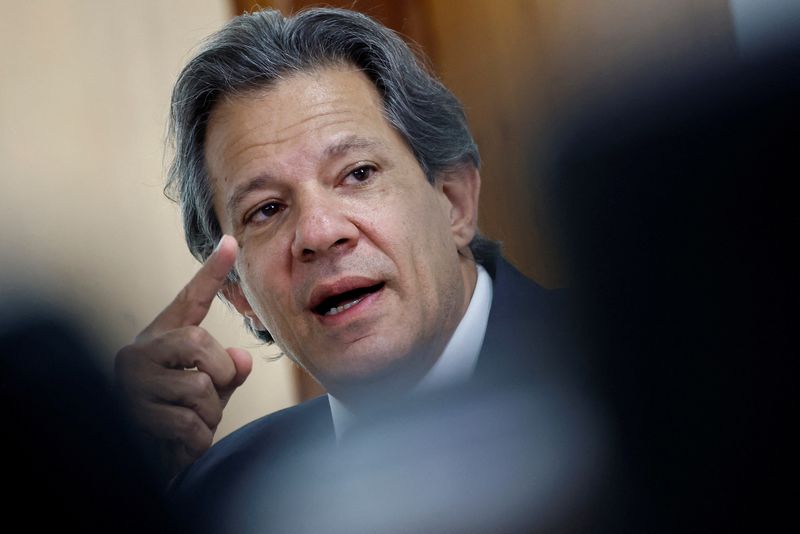
By Marcela Ayres and Lisandra Paraguassu
BRASILIA (Reuters) – Brazil’s government is preparing measures to curb spending that would put health and education expenditures under a general cap that already applies to other outlays, two officials familiar with the matter said on Tuesday.
The measures, which have not been finalized, are aimed at easing fiscal concerns that have pushed Brazil’s currency to its weakest level since March 2021 in recent sessions, amid volatile trading ahead of the U.S. election.
The government sources, who requested anonymity to discuss ongoing talks, said the plan is to end an exemption for health and education spending from fiscal rules passed last year under President Luiz Inacio Lula da Silva’s administration.
Those new fiscal rules combine annual fiscal targets with a spending growth cap of up to 2.5% above inflation.
The Finance Ministry declined to comment on discussions.
Finance Minister Fernando Haddad previously said the government was working on measures to extend the lifespan of the new fiscal framework, which could be announced this week.
Earlier on Tuesday, Lula’s chief of staff was set to meet with the ministers of social security and social development to discuss new fiscal measures, his office said in a statement.
Currently, health spending is required to be at least 15% of net current revenue, while education spending must be at least 18% of net tax revenue. As government revenue rises, those spending categories have consumed a growing share of the budget.
In meetings held this week to discuss fiscal measures, the health and education ministers showed little resistance to the plan, one source said, noting that they are already spending less than their earmarked budget.

The Education Ministry did not immediately respond to requests for comment, while the Health Ministry said it would seek to reply when possible.
Under the current spending dynamics, key mandatory expenses, such as pensions and some social programs, have been increasing much faster than the overall spending cap rate, squeezing out other spending and threatening the new fiscal framework.
This post is originally published on INVESTING.



